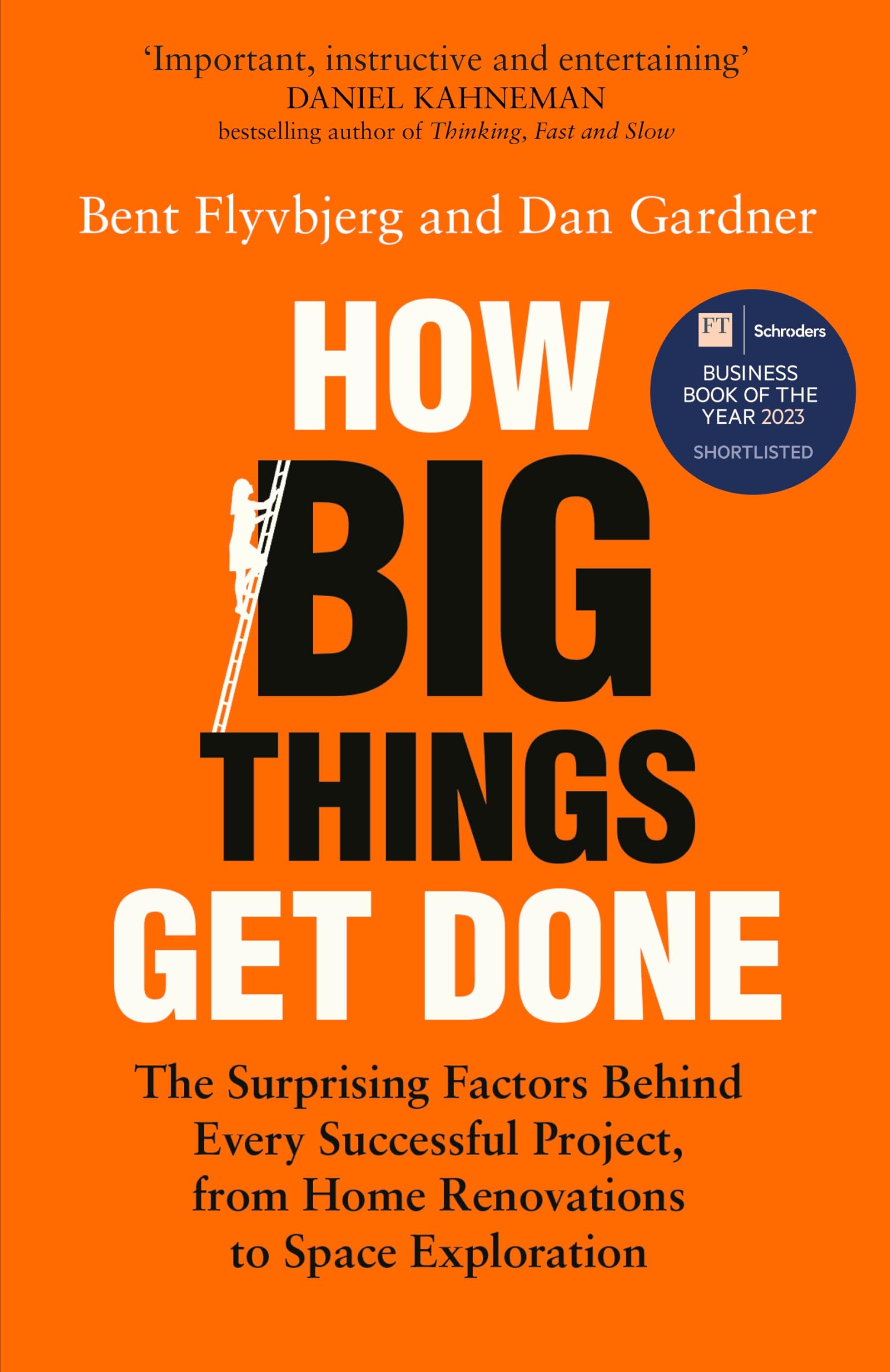1. Human Irrationality and Moral Hazard due to Agency Problem
- Big projects have a really poor record. They almost always underestimate the time and money required, meaning almost all projects are over budget and over time.
- The various causes and solutions for this poor record reveal much about human psychology, complex systems, scalability, mastery, and other key ideas that can apply in many fields. This poor estimation stems from a mix of purposeful misleading on the part of contractors and lack of competence.
- In cases of purposeful misleading, people taking on large projects—often based on bids—lowball their estimates to make their project more likely to be chosen. The less money and time you say it will cost, the better chance your firm will be hired. Once hired, with funds allocated and foundations dug, it becomes difficult to stop. Humans also tend to be poor estimators and are often overly optimistic.
- There is also the idea of the sunk cost fallacy, where we humans irrationally continue investing resources if we've already put in a considerable amount, even when it doesn’t make sense. Sometimes, this is not intentional but rather due to incompetence, reflecting an inability to correctly estimate timeframes.
2. Things Don't Go Wrong, They Start Wrong
- Another key idea is that projects don't go wrong; they start wrong. The project was doomed from the start, similar to what Sun Tzu says, “Victorious warriors win first and then go to war, while defeated warriors go to war first and then seek to win.”
- This knowledge leads us to planning specifics: understanding when costs will rise drastically and doing as much preparation, simulation, and planning as possible. For example, with Pixar animation, they plan in detail, creating thorough storyboards, and share the story and its visuals with as many staff members as possible. This allows for repeated reworking of ideas and planning, sometimes over years or decades, at low cost before engaging costly animation, computing, and labor.
- This can be summarized in the heuristic: ‘think slowly, act quickly.’ This approach is especially true for decisions that are irreversible or difficult to redo.
- Projects, even when completed on time and on budget, often fail to deliver the intended benefits. For this reason, we must always start projects by asking, 'Why?' For instance, the goal may not be to build a hydropower dam but to provide energy. By asking 'why,' we gain a clearer understanding of our objectives and may discover more effective methods. If we want energy, perhaps solar, wind, or nuclear power would be better. The goal is not to build a road but to connect people. By thinking in this way, we open ourselves to better solutions.
3. You Cannot Replace Experience as Things Get More Complex
- Experience is crucial in large, complex, costly, and irreversible projects. Having experienced people on the team is invaluable, as they have learned from years of doing similar work. This knowledge is hard to transfer through reading or explanation. Many small but significant insights can only be grasped by those who have firsthand experience.
- The same goes for experienced technology. Long-used tools have had most flaws identified and resolved, and issues are easier to address than with brand-new or unique technologies.
4. Importance of Modularity
- Modularity allows for the benefits of the learning curve. The more roads you build, the better you get. Building one foot of road is similar to building a mile; it’s just longer. However, that isn't the case for dams or tunnels, where the project differs significantly with size and complexity.
- Wherever possible, it is advantageous to do small, repeatable pieces rather than one large, unique project. For instance, instead of one large hydropower dam, a nation with suitable areas should consider building many smaller dams. Each completion provides experience and knowledge. These smaller dams can begin providing benefits more quickly, whereas a single large dam requires full completion before energy is available.

